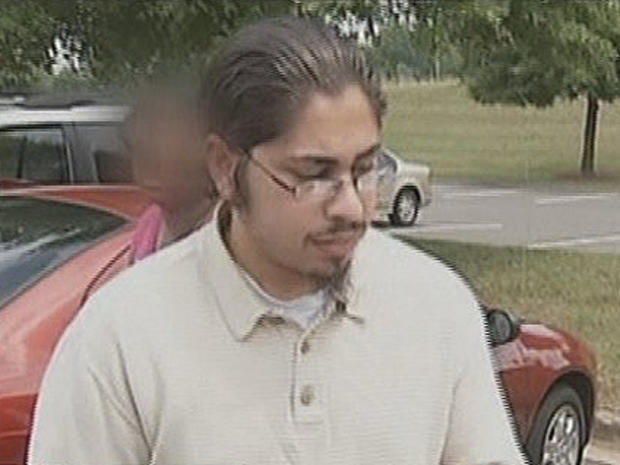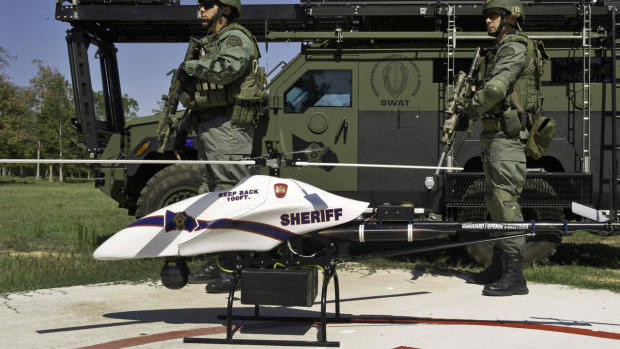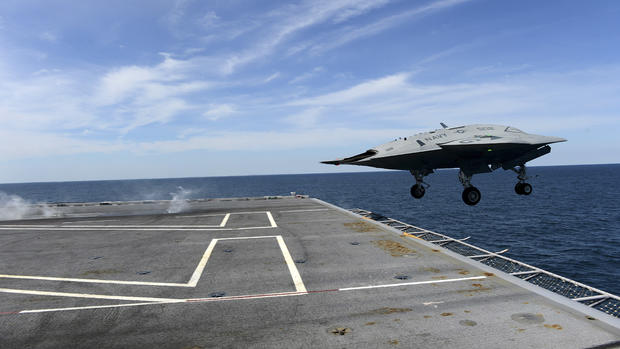Who were the 4 U.S. citizens killed in drone strikes?
On Wednesday, the Obama administration publicly acknowledged for the first time that four Americans were killed in drone strikes since 2009as part of U.S. counterterrorism activities surrounding al Qaeda . Of the four, only one of them, Anwar al-Awlaki, was targeted, according to Attorney General Eric Holder in a letter to Senate Judiciary Committee Chairman Patrick Leahy. The following are descriptions of the four men killed in drone operations.
Anwar al-Awlaki
Anwar al-Awlaki was an articulate, charismatic Muslim orator and jihadist. He was born in Las Cruces, New Mexico in 1971; he died on Sept. 11, 2011 at age 40. He was called by some "the emir of the Internet" because of his abilities as an orator -- often seen with his hand raised, his finger pointing, his long, thin black beard, sitting-crossed legged behind a podium, preaching, lecturing and calling for jihad against America. His parents were born in Yemen. His father, Nasser, al-Awlaki, came to the U.S. as a Fulbright scholar and studied agriculture economics at Mexico State University, and later received a Ph.D. from the University of Nebraska.
- Attorney General Holder: Drones killed 4 Americans since 2009
- 2nd U.S. jihadist reported dead in drone attack
- Who was Anwar al-Awlaki?
Anwar Al-Awlaki received a B.S. degree in civil engineering from Colorado State in 1994. He reportedly spent one summer while a student living in Afghanistan with the Mujahideen -- former American allies in the Afghan-Soviet War who later became corrupt and gave rise to the Taliban. Al Qaeda was in Afghanistan at that time and al-Awlaki, with his command of Arabic and English, might have become radicalized then.
When he was killed, on Sept. 30, 2011, in Yemen, it was the first known time that a U.S.-controlled drone strike deliberately targeted and killed an American citizen. Obama called it a "major blow to al Qaeda's most active operational affiliate." But many condemned this extra-judicial killing.
Al-Awlaki said that he felt close to Sayyid Qutb, the Egyptian-born writer, and intellectual force of the Muslim Brotherhood. Osama bin Laden was also influenced by Qutb.
Al-Awlaki said that he taught and trained Umar Farouk Abdulmutallab, the Nigerian-born "underwear bomber, who was going to bomb Northwest Airlines Flight #523 on Dec. 25, 2009. But he said that he did not order the attack.
Samir Khan
Also killed in the same drone attack that claimed Al-Awlaki was Samir Khan, a U.S. citizen of Pakistani heritage. Khan was born in Saudi Arabia in 1986 and grew up in Queens, New York, in a typical middle-class family. His parents are said to have become worried that as a teenager he was becoming too religious. His family moved to North Carolina and he lived with them until at least 2007. It was during this time, U.S. officials say, that Khan began to help violent jihadist groups online, using his skills on the Web. He seemed to be operating on his own and didn't appear to be tied to any terrorist group.
In 2009, Khan left home for Yemen and became a part of al Qaeda in the Arabian Peninsula. It was here, again using his computer and literary skills, that Khan started "Inspire," the influential online jihadist magazine. Khan was killed in the same air strike that killed Anwar al-Awlaki.
"I am proud to be a traitor," he told ABC News in 2010.
Jude Kenan Mohammad
According to the Justice Department, Jude Kenan Mohammad was killed by a U.S. drone in Pakistan. He was a U.S. citizen and former resident of North Carolina. He was born in Florida of a Pakistani father. He went to high school in North Carolina, dropped out in 2006, but later received a GED. In 2008, he left the U.S. to visit his father, who had moved back to Pakistan. He later disappeared into the tribal areas of Pakistan, along the Afghanistan border. There he was trained, most probably by al Qaeda.
In 2009, a North Carolina jury indicted him and others on conspiracy charges to commit terrorism. As an American citizen, with a U.S. passport and American accent, he was the type of person U.S. authorities feared -- and al Qaeda sought -- to wage jihad in America.
Abdulrahman al-Awlaki
Anwar al-Awlaki and his Egyptian-born wife, Gihan Mohsen Baker, had an American son, born on Sept. 13, 1995, in Denver, while al-Awlaki was a student at Colorado State. His son's name Abdulrahman Anwar al-Awlaki. He was killed at age 16 in a drone strike on Oct. 14, 2011, in Yemen. It, too, was a controversial extra-judicial killing. Some U.S. officials called it a mistake. Even the president is said, in some reports, to have considered it a bad mistake.
It is not clear where the young al-Awlaki was when he was killed. Some reports say that he was in a cafe with friends; other reports that he was sitting by the road eating with friends. His family said that he had run away from home and was trying to find his father. He had no known ties to terrorism.
Former White House press secretary Robert Gibbs, stated that his death was justified, and that he "should have had a more responsible father."


